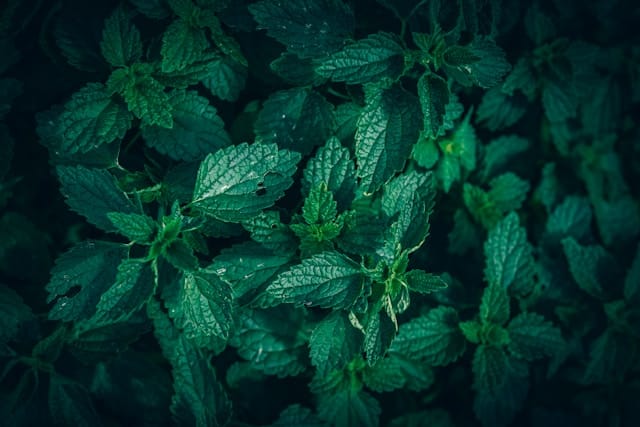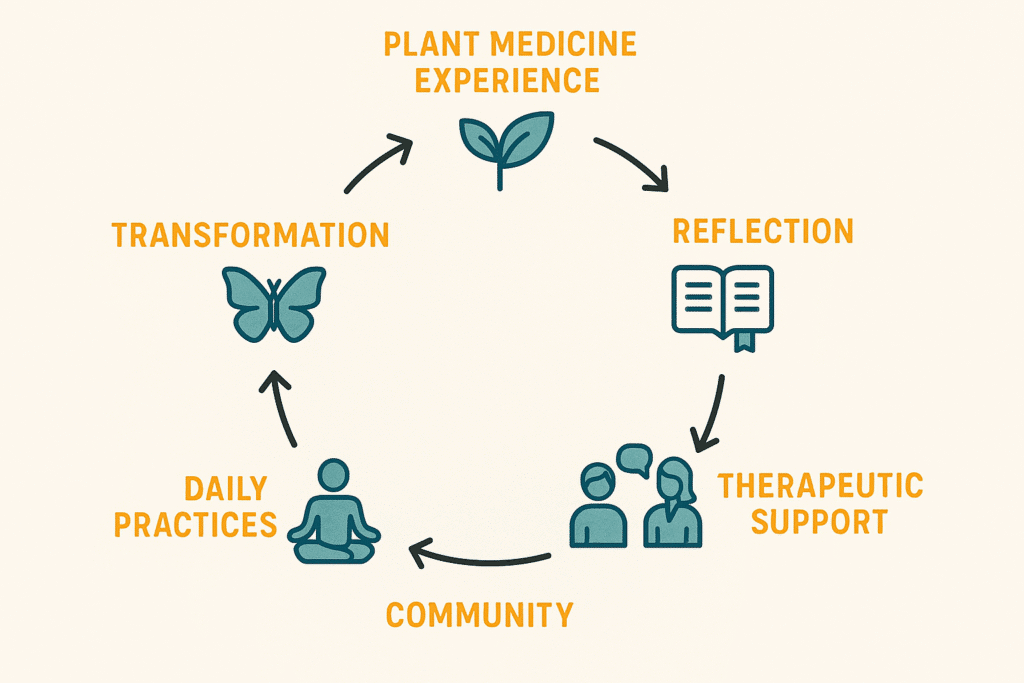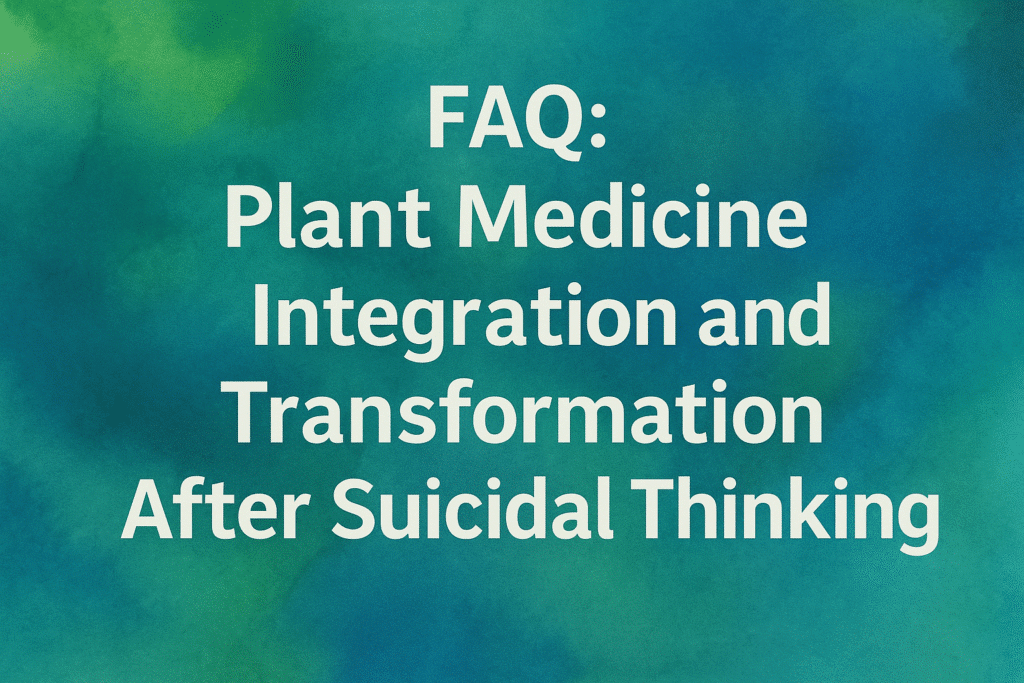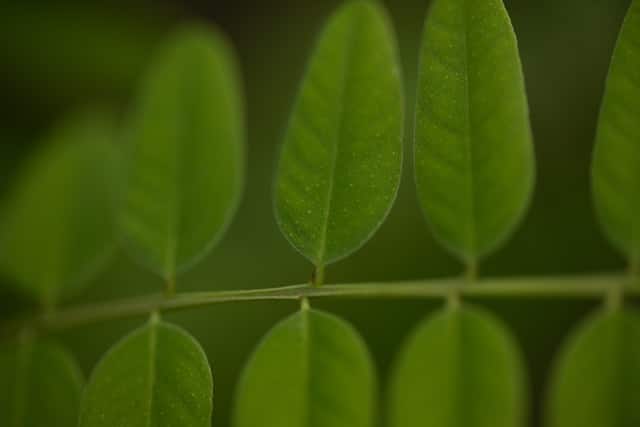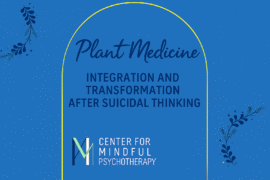
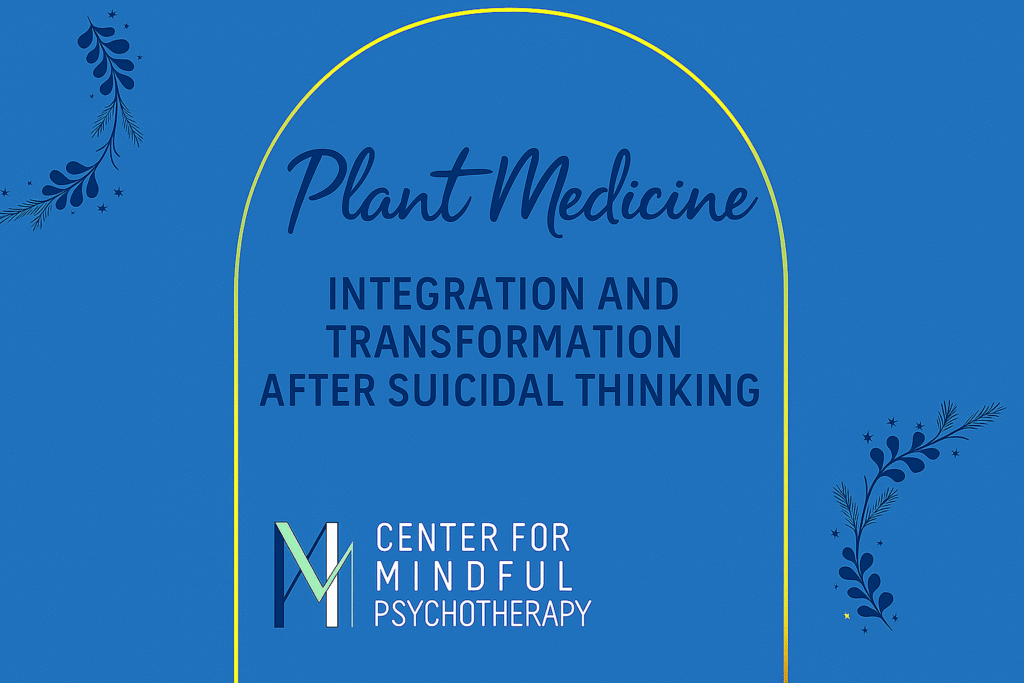
In recent years, plant medicine has gained attention as a powerful tool for healing trauma, depression, and despair. Many individuals who have faced suicidal thinking turn to psychedelics such as psilocybin, ayahuasca, or other plant-based medicines in search of relief. While these experiences can open profound insights and moments of transformation, the true healing often comes afterward, through the process of integration. Plant medicine integration and transformation after suicidal thinking is not about a single journey or ceremony. It is about the ongoing work of making sense of what was revealed and incorporating those lessons into daily life.
Find a Therapist
The Appeal of Plant Medicine for Suicidal Despair
When someone is living with suicidal thoughts, they may feel disconnected from meaning, trapped in cycles of pain, or hopeless about the future. Plant medicine has been described as offering a radical interruption of these patterns. Experiences with psilocybin or ayahuasca, for example, can create moments of connection to self, others, or the universe that feel deeply healing.
Research supports this potential. Clinical studies on psilocybin show significant reductions in depression and suicidal ideation for some participants. Many describe a sense of unity, self-compassion, or spiritual connection that offers relief from despair. For people who have struggled to find hope through traditional methods, plant medicine can feel like a doorway to new possibilities.
Why Integration Is Essential
However, plant medicine journeys are not cures in themselves. Without integration, the insights gained can fade or even feel destabilizing. Integration is the process of reflecting on what occurred, understanding its meaning, and weaving it into daily life in a sustainable way.
For those emerging from suicidal thinking, integration is especially important. Plant medicine may provide glimpses of light or connection, but lasting transformation requires ongoing support. Otherwise, the gap between the intensity of the experience and the realities of everyday life can become overwhelming.
Integration involves practices such as journaling, therapy, meditation, community support, and lifestyle changes. It creates a bridge between the revelations of the plant medicine journey and the person’s everyday struggles, ensuring that insights become lived transformation rather than fleeting moments.
Transformation Through Integration
Transformation after suicidal thinking is often not about eliminating despair entirely but about relating to it differently. Plant medicine integration helps people develop new perspectives on their pain. They may come to see suicidal thoughts as signals pointing to unhealed wounds rather than as final truths. They may recognize inner strengths, hidden resilience, or previously unseen sources of meaning.
Integration also helps people stay grounded. A vision of interconnectedness during a ceremony may be powerful, but its real impact comes from translating that vision into daily practices of compassion, mindfulness, or relational repair. Over time, these practices reduce the likelihood of returning to cycles of despair.
The Role of Therapists in Plant Medicine Integration
Therapists play a vital role in plant medicine integration and transformation after suicidal thinking. While many ceremonies are guided by facilitators, integration often requires ongoing therapeutic support. Therapists help clients unpack their experiences, identify themes, and connect insights to their personal histories.
For example, if someone experienced forgiveness during a psilocybin journey, a therapist can help them explore how that forgiveness might apply to relationships or self-compassion in daily life. If someone felt connected to nature, therapy can help them cultivate practices that sustain that connection. Integration therapy ensures that the wisdom of plant medicine is not lost but becomes a resource for healing.
Addressing Risks and Misconceptions
It is important to acknowledge that plant medicine is not a safe or appropriate path for everyone. For individuals with certain psychiatric conditions or those without adequate support systems, psychedelic experiences can increase risk. Additionally, plant medicine journeys are sometimes romanticized as quick fixes. This perspective can be harmful, especially for people emerging from suicidal ideation who may be vulnerable to disappointment if they do not experience immediate relief.
Integration provides a safeguard against these risks. It helps individuals set realistic expectations and ensures that the journey is part of a broader healing process rather than an isolated event. When combined with therapy and support, plant medicine integration can become a stabilizing rather than destabilizing force.
Honoring Cultural Roots and Ethical Practice
Many plant medicines, such as ayahuasca, have deep cultural and spiritual roots in Indigenous traditions. Ethical practice requires honoring these origins, avoiding appropriation, and ensuring that plant medicine work is approached with respect. Integration also involves reflecting on the cultural and spiritual dimensions of the medicine, rather than treating it solely as a clinical intervention.
For individuals who have faced suicidal despair, this respect can deepen healing. Recognizing that they are participating in practices with centuries of wisdom behind them can provide a sense of belonging to a larger human story of resilience and survival.
Next Steps
- Begin integration by establishing grounding practices such as journaling, mindfulness, or creative expression.
- Identify a therapist or integration coach who understands both suicidality and plant medicine experiences.
- Connect with a supportive community that honors your process and provides accountability.
- Translate insights into practical daily habits, such as improved sleep routines, compassionate self-talk, or healthier boundaries.
- Acknowledge that transformation is gradual and requires patience, consistency, and self-compassion.
- Approach plant medicine with respect for cultural roots and with realistic expectations about healing.
- Balance spiritual or ceremonial insights with evidence-based therapy and crisis resources.
- Revisit insights over time, refining and adapting them to evolving circumstances.
- Remember that integration is not a one-time step but an ongoing relationship with yourself, your community, and your healing journey.
Find a Therapist
FAQ: Plant Medicine Integration and Transformation After Suicidal Thinking
How is plant medicine integration different from the plant medicine journey itself?
The ceremony or psychedelic experience often provides intense insights, emotions, or visions, but these moments are fleeting unless they are processed afterward. Integration is the therapeutic and reflective work of making meaning from what occurred and applying it in everyday life. This may include revisiting themes in therapy, journaling about personal realizations, or adjusting lifestyle habits to reflect new perspectives. Without integration, the experience can remain abstract or even overwhelming. With integration, the journey becomes a catalyst for grounded transformation.
Why is integration particularly important after suicidal thinking?
Individuals who have struggled with suicidal ideation often carry a heightened vulnerability to despair and hopelessness. Plant medicine may provide profound moments of relief or insight, but without integration, those moments can fade and leave people feeling destabilized. Integration helps transform temporary states into lasting resources. By creating daily practices that honor insights, individuals learn to approach suicidal thoughts as signals rather than directives, building resilience and stability over time.
What role can therapy play in plant medicine integration?
Therapy serves as a structured container for unpacking plant medicine experiences. A therapist trained in integration can help clients link symbolic or spiritual insights to their personal history and current challenges. For example, if a client experiences a vision of forgiveness, therapy can guide them in exploring how forgiveness applies in relationships or in self-compassion. Therapists also provide accountability and safety, ensuring that integration unfolds in a supportive and clinically informed manner.
Can plant medicine replace therapy or crisis support for suicidal individuals?
Plant medicine should never be viewed as a substitute for professional or crisis care. While research shows that psychedelics may reduce depression and suicidal ideation, they are not quick fixes and can even increase risk without appropriate support. Crisis services, therapy, and medication remain vital. Plant medicine can be a meaningful complement when integrated responsibly, but it is not a standalone cure.
What risks should be considered when exploring plant medicine for suicidal despair?
Psychedelic experiences can be destabilizing, particularly for individuals with certain psychiatric conditions, histories of trauma, or limited support systems. Risks include re-traumatization, intensified anxiety, or overwhelming confusion if insights are not processed. There are also cultural and ethical concerns, such as the potential for appropriation or unsafe facilitation. Integration mitigates these risks by helping individuals set realistic expectations, providing grounding practices, and ensuring that healing unfolds within a safe, structured framework.
How does cultural respect play a role in integration?
Many plant medicines, such as ayahuasca, originate in Indigenous traditions that carry centuries of wisdom and ritual. Engaging with these medicines responsibly means honoring their cultural roots, avoiding commodification, and approaching ceremonies with humility. Integration involves reflecting not only on personal insights but also on the ethical and cultural dimensions of the experience. Recognizing these traditions adds depth to healing and connects individuals to a larger human story of survival and resilience.
Can integration help reduce the likelihood of relapse into suicidal thinking?
Yes. Integration builds protective routines and coping mechanisms that strengthen resilience. By translating ceremonial insights into sustainable daily practices, individuals create buffers against returning to old cycles of despair. For example, someone who feels connected to nature during a journey might begin incorporating daily walks outdoors as an anchor. These practices reinforce meaning and belonging, both of which are strong protective factors against relapse into suicidal ideation.
What does transformation through integration look like in practice?
Transformation is not about erasing pain but about relating to it differently. Through integration, individuals often shift from viewing suicidal thoughts as permanent truths to seeing them as signals pointing to unhealed wounds. This reframing reduces shame and opens possibilities for growth. Transformation may look like increased self-compassion, stronger connections to community, or greater alignment with personal values. It is a gradual process that unfolds as insights are revisited and embodied in daily choices.
How can loved ones support someone integrating plant medicine after suicidal thinking?
Loved ones can offer validation, patience, and respectful curiosity. They can listen without judgment, encourage engagement with supportive communities, and affirm the importance of integration practices. Families and friends may also benefit from education about plant medicine to better understand the significance of the process. By showing respect and support, loved ones help create a safe environment where integration can take root and flourish.
More Reading for Suicide Prevention:
- 10 Books to Explore During Suicide Prevention Month
- Suicide Risk During Major Life Transitions (Divorce, Retirement, Moving)
- When Words Aren’t Enough: Alternative Therapies for Suicide Prevention
- Project Semicolon: An In-Depth Look at Its Origins, Growth, and Mission
- What Project Semicolon Founder Amy Bleuel’s Death Might Teach Us About Suicide
- Understanding Suicide Bereavement: How It Differs from Other Forms of Grief and Effective Therapeutic Approaches
- The Role of Narrative Therapy in Rewriting Suicidal Stories
- Intergenerational Trauma and Its Link To Suicide in Families
- How Attachment Styles Relate to Suicidal Thinking
- 12 Mindfulness Practices for Interrupting Suicidal Thinking
- The Role of Perfectionism and People-Pleasing in Suicidal Ideation
- How Somatic Experiencing Helps Heal Suicidal Despair
- Internal Family Systems (IFS) and the Parts of Us That Want to Give Up
- How DBT Skills Support People Living with Suicidal Ideation
- 10 Ways Art and Music Therapy Serve as Pathways Away from Suicidal Thinking
- 10 Ways Healthy Boundaries Support Suicide Prevention
- Suicide Prevention Through the Lens of Anti-Oppressive Practice
- How Neurodiversity Intersects with Suicide Risk
- 10 Spiritual Practices That Can Help People Facing Suicidal Despair


